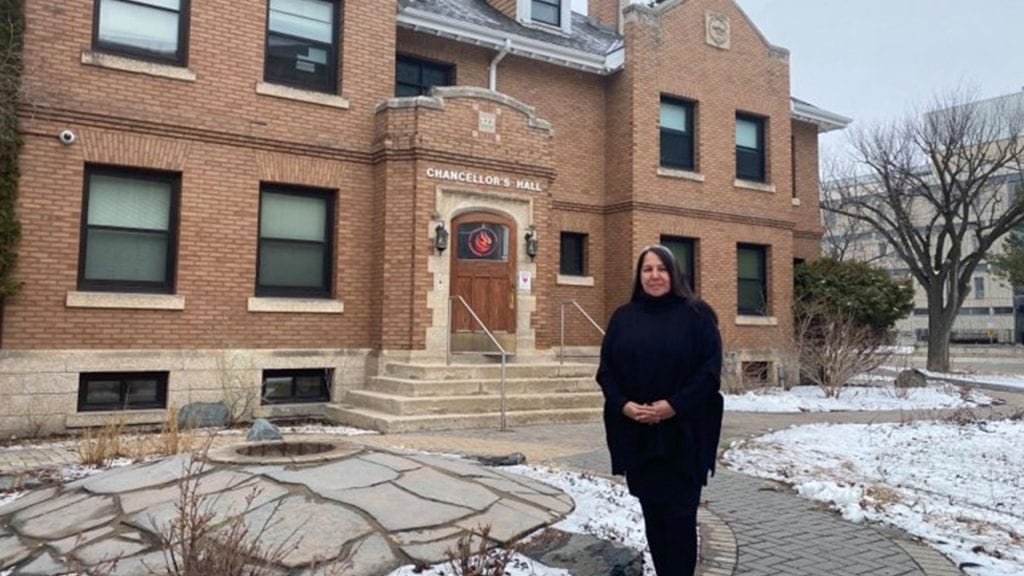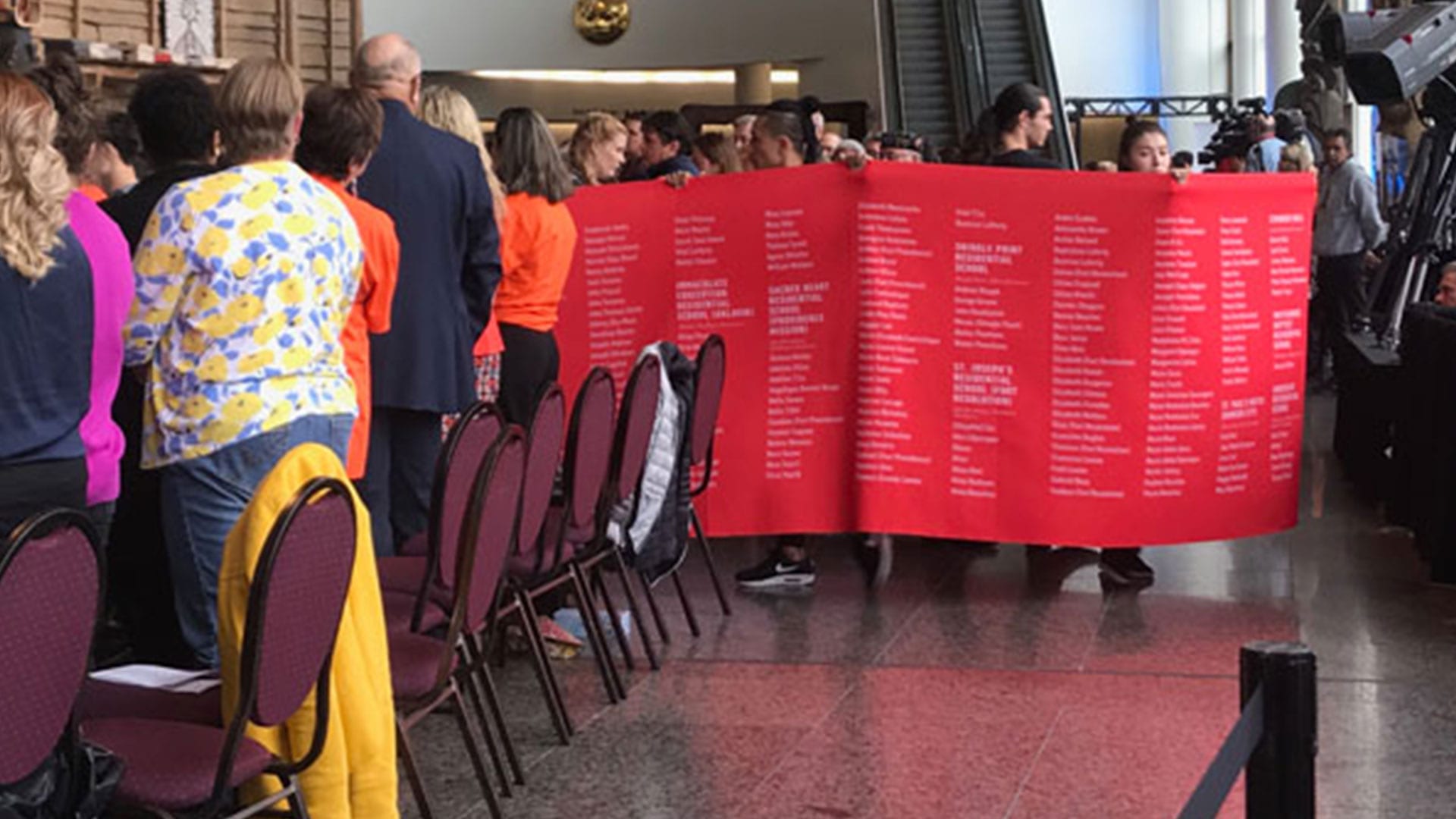
For the first time the National Centre for Truth and Reconciliation in Winnipeg will be lead by an Indigenous woman.
Stephanie Scott officially stepped into the role of executive director earlier this month after serving as acting director since last fall.
However, it was still a surprise when she was picked to take over the role.
“When they called me I really almost felt like I was going to faint because I was in disbelief that such a gift would be given to me to continue to do the work,” Scott told APTN News.
Scott has been with the centre since 2016 as director of operations.
Scott is Anishinaabe from Roseau River First Nation.
She was born and raised in Winnipeg, and was adopted out as part of the Sixties Scoop.
Prior to joining the centre, she was manager of statement gathering with the Truth and Reconciliation Commission (TRC).
This position took her across the country and it’s still work she cherishes today.
“My favourite thing is working with survivors…they’re really the strength and the voice behind the work that we do,” said Scott.
“I don’t do this alone so I really work with them and help to amplify their voices.”
Scott was part of a special ceremony in Gatineau, Que., in September 2019 honouring the thousands of children who died while attending residential schools.
She helped unveil a ceremonial cloth with the names of 2,800 children who died.
She said that moment was a turning point for communities. They started to become responsive to the work and research the centre was doing.

That work is continuing under Scott’s leadership with the centre beginning work on the second phase of the Missing Children Project.
Together the TRC and the centre have identified more than 4,000 children who died while attending residential schools, but Scott knows there are more.
The centre is also launching a new website, which will include a new database that will make accessing records easier.
When Scott’s not at the NCTR she is spending time with family.
She is a wife, mother of twins and a grandmother to four young boys.
“Family is absolutely key. You can’t do this work alone. Somebody has to ground you,” said Scott.
“You have to have dialogue and talk about the things that you witness day to day or hear because it is vicarious trauma.”
While Scott may not have ever seen herself in this new role, all the work she’s done leading up to it has made it clear she’s exactly where she’s meant to be.
“It doesn’t matter where you get to in society I still get followed when I walk into a store, so there’s a lot of education that needs to happen,” she said.
“Reconciliation isn’t dead. We have to continue moving it forward, but it’s just not the responsibility of one person it’s going to take everyone.”









